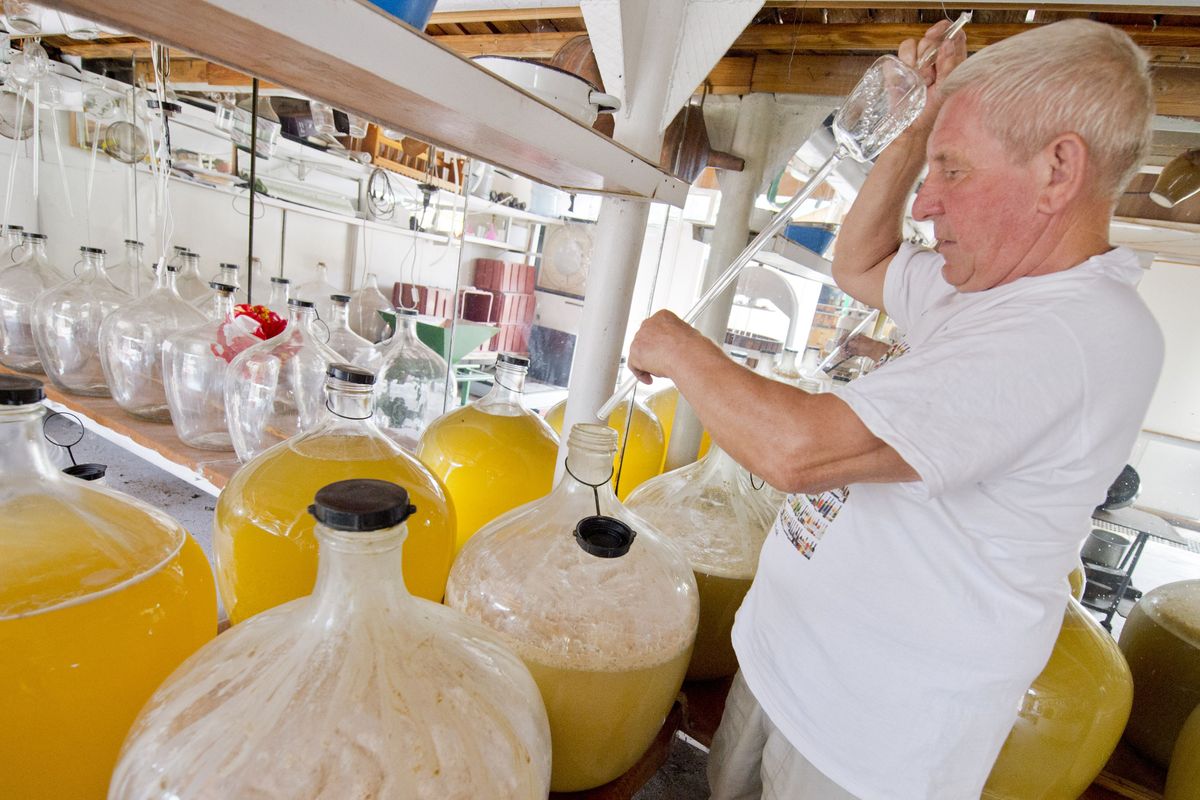Elderly Wine-grower Asphyxiates with Gas Produced by 'Burčiak'

Dulovce, September 21 (TASR) – The tasting of half-fermented wine known in Slovakia as ‘burčiak’ [boor-chi-ak], considered by small wine-growers as one of their greatest joys, turned into a tragedy in the village of Dulovce (Nitra region) on Thursday evening, as four men fell unconscious and one of them, the 76-year old husbandman, eventually died after inhaling carbon dioxide released from wine fermentation in his home cellar.
“A 68-year old man remains in hospital, while the other two men are recovering at home,” said Nitra regional police spokesperson Bozena Bruchterova.
The husbandman was the first one to descend into the cellar for burčiak, but he took sick almost immediately. The 68-year old man, his guest, rushed to help him, but he also went ill.
A panic broke out in the house, and a 41-year old man and a 16-year old youth from the neighbourhood ran up to rescue the elderly men who had fallen unconscious in the meantime. Nevertheless, the two upon entering the cellar lost consciousness as well. Fire-fighters and a medical emergency service, also alerted in the meantime, eventually carried all four men out of the cellar and took them to hospital. The 76-year old man died in hospital on Friday.
The police on Friday issued a public warning against the noteworthy strength of carbon dioxide released in the fermentation.
“Unnecessary deaths occur every year in this season due to high concentration of carbon dioxide produced by wine fermentation in small and closed rooms. If inhaled, carbon dioxide can cause the person in question to lose consciousness, and the paralysed person eventually asphyxiates,” said Bruchterova.
Burčiak, usually containing 4-6 percent of alcohol, is defined by the Slovak law as fermenting must produced exclusively from grapes grown in Slovakia.
The term ‘burčiak’, according to etymologists, is composed of two stems – ‘bur’ and ‘džak’, the one referring to its stormy nature and the other to giving thanks for the vintage.
Burčiak, as a strictly seasonal product lasting in its state for only a few days, was known and used to be consumed only in wine-growing regions before the emergence of fast transport and modern artificial cooling.



